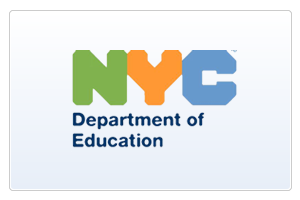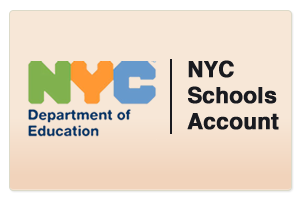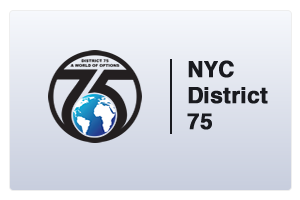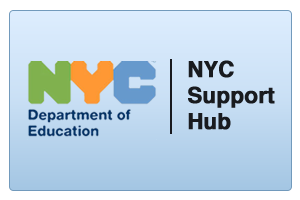School Year 2022-2023

P771K Education with H.E.A.R.T.
- Special Education for Children Entering Kindergarten
- Referral
- Receive Notice of Referral
- Assessments
- Medical Forms
- Kindergarten IEP Meeting
- Eligibility
- Kindergarten IEP
- Kindergarten IESP
- School Location Letter
- Family Meeting
- Parents’ Rights
- Getting Help
To accept placement, please email
Principal Ferrandino at
VFerrandino2@schools.nyc.gov
![]()
Turning 5/Incoming Kindergarten
Turning 5/Incoming Kindergarten "Meet and Greet" Date to TBA
Families of children with disabilities entering kindergarten in September 2020 will take part in two processes. They are:
- The Turning 5 Process, which is how special education services and supports are determined for children entering kindergarten.
- The kindergarten admissions process
While DOE schools and offices operate remotely, we know you may have concerns about the Turning 5 process. Please know that the DOE is working to make sure that all students have timely and appropriate IEP meetings and placements for kindergarten. IEP meetings will be held via teleconference during this time. Your assigned IEP team for the Turning 5 process will contact you to provide additional information and supports.
Please email Turning5@schools.nyc.gov with questions.
Special Education for Children Entering Kindergarten
The DOE will work with you to consider whether your child needs special education in Kindergarten, and if so, develop an Individualized Education Program (IEP). This is called the "Turning 5" process, and your participation is important.
Please email Turning5@schools.nyc.gov to request of copy of the "Kindergarten Orientation Guide for Families of Students with Disabilities Entering Kindergarten in Fall, 2020.
Referral
The Turning Five process starts with a referral. This process will depend on whether your child already has a preschool IEP.
If your child has a preschool IEP
- The Committee on Preschool Special Education (CPSE) will refer your child for an evaluation for school-aged special education.
If your child does not have a preschool IEP
- You may submit a written referral.
- The Department of Education (DOE) may also make a referral and notify you.
For more information about the referral process, visit the Making A Referral page.
Receive Notice of Referral
After we receive a referral, we will send you a blue Notice of Referral between December and August. This notice confirms that an IEP team will consider your child’s need for a kindergarten IEP. Next, you will be contacted by a DOE representative who will work with you throughout this entire process. That person will be a school psychologist or school social worker from a local school or a Committee on Special Education (CSE) office. Your child’s IEP meeting will likely take place at that school or office. Keep in mind that having an IEP meeting at a particular school does not mean that your child will be admitted there.
Assessments
Before the IEP meeting, the DOE may conduct assessments of your child. These assessments may include observation of your child in his or her current preschool classroom. The IEP team will also review your child’s file, including evaluations and progress reports from your child’s teachers and related service providers. This will help the team determine what new assessments, if any, will be needed.
You will receive a letter informing you if new assessments are needed. If they are, we will also ask for your consent to conduct the assessments. If new assessments are done, you will receive copies of the reports before the IEP meeting.
If you would like the IEP team to consider any other assessment reports or documents, you should provide them to the IEP team, and they will consider them.
For more information about the assessment process, visit the Evaluation page.
Medical Forms
You may need to give your DOE representative completed medical forms if you think your child may need:
- Health services
- Specialized Transportation (Special Education Bus Service) due to a medical need or mobility limitation.
Please provide medical forms as early as possible so the IEP team can review the forms before the IEP meeting. You may also need to give updated medical forms to the DOE before school starts in September.
Kindergarten IEP Meeting
You will get a letter with the date, time, and location of your child’s IEP meeting at least five days before the meeting. At this meeting, the IEP team will determine whether your child is eligible for special education in kindergarten. If so, the IEP team (including you) will develop an IEP for kindergarten.
Who should attend the IEP meeting?
You, the parent or guardian, are a very important member of the IEP team. Other participants (in person or over the phone) may include:
- Your child’s teacher(s) and/or related service provider(s);
- A school psychologist; and
- Others with knowledge about your child or who have special expertise.
Most IEP meetings will be held at a child’s zoned elementary school, if they have one. If the DOE representative leading the meeting does not work at your zoned elementary school, the DOE may also invite a professional from the zoned school. If your child has received an offer to another school for kindergarten, let your DOE representative know before the meeting; a professional from the school your child will attend may be invited.
Help and Support
If you want a ‘parent member’ (a parent of another child who has had an IEP) or a doctor to attend the meeting, let your DOE representative know at least 72 hours before the meeting.
If you speak a language other than English, let your DOE representative know if you will need an interpreter at the IEP meeting. If so, the DOE will provide one.
Find Out More
Eligibility
At the IEP meeting, the IEP team will first discuss whether your child is eligible for school-age special education. To be eligible, your child must meet the criteria for one of 13 disability classifications. The disability classification will be listed on your child’s IEP. This is different than for preschool special education. In preschool, every child with an IEP is classified as a “Preschool Student with a Disability” on the IEP.
Find out more about disability classifications on The IEP page:
If your child has a preschool IEP but the IEP team finds that they are not eligible for special education in kindergarten, your child will be “declassified.” They will go to a general education class for kindergarten. The team may also recommend “declassification support services” for your child’s first year without special education. These services may include:
- Instructional support;
- Accommodations; or
- Related services (such as speech therapy or counseling).
Kindergarten IEP
If your child is eligible for school-age special education, the IEP team will create an Individualized Education Program (IEP) for your child. The IEP will include information about your child’s strengths, interests, and unique needs. The IEP team will also set goals based on your child’s abilities and needs. The IEP team will describe what skills your child will work on in kindergarten. The team will then decide what supports and services your child will need in order to reach those goals. After the IEP meeting, a copy of the IEP will be given to you, or mailed to you within two weeks.
Kindergarten IESP
If your child will go to a private or religious school in New York City, they may be eligible to receive special education services and/or related services provided by the DOE. If you decide to send your child to a private or religious school (at your expense), let your DOE representative know that you are seeking special education in a private or religious school. If you make this request and your child is eligible for special education, the IEP team will develop an Individualized Education Services Plan (IESP) instead of an IEP. The IESP will describe the special education services and/or related services to be provided while your child attends the private or religious school. You will need to provide the name and address of the private or religious school your child will attend.
If your plans change at any time, let your DOE representative know. If an IESP has been developed for your child and you would like to send your child to public school, request a new IEP meeting. Contact your DOE representative or the district CSE office to do so.
Schools Outside of NYC
If your child will attend a school outside of New York City, tell your DOE representative. S/he will provide you with contact information for the school district where the school is located. This school district will work with you to develop an education program and provide any recommended services.
School Location Letter
Starting in May, you may receive a green notice in the mail. This is the school location letter. This letter will list your child’s recommended special education services and the school that will provide these services.
Most children with IEPs receive special education services in the school they would go to if they did not have IEPs.
- If you apply to kindergarten:
- The recommended services will most likely be provided in the school where your child receives an offer—or where you’ve already pre-registered.
- If you do not apply to kindergarten:
- The recommended services will most likely be provided in a school in your home district.
Special Situations
If your child’s IEP recommends a specialized (District 75) school, your child will receive a placement in a DOE specialized school.
If your child’s IEP recommends a state-approved or state-supported non-public school, the school where your child was accepted will provide the recommended services.
If your child’s is accepted into a “specialized program” such as ASD Horizon, ASD Nest, or ACES, your child will receive a placement to a school that can provide that program.
If your child requires an accessible school, your child will be offered a placement in such a school.
Find Out More
Family Meeting
If the school that is listed in the green school location letter did not take part in your child’s kindergarten IEP meeting, staff at your child’s new school may invite you to a “family meeting.” At the family meeting you can:
- Visit the school
- Look over your child’s IEP with school staff
- Share information about your child
- Ask any questions you may have about how the services on the IEP will be provided
If you would like to visit the school or have a family meeting, contact the school’s parent coordinator or principal. Explain that your child will be attending this school but that your child’s kindergarten IEP meeting did not take place at the school. You can also let the school know if you prefer to talk over the phone or do not want to meet at all.
Parents’ Rights
As the parent of a child entering kindergarten, you have a number of rights. For more information, visit the Your Rights page:
Getting Help
A DOE representative will help you through this process. This should be the first person you contact with questions or concerns.
If you have a problem that cannot be resolved by your DOE representative or by your respective CSE office, call 311 or email Turning5@schools.nyc.gov. They will need to know:
- Your child’s name
- Date of birth
- School or CSE information
- Brief description of your concern
You can also contact the organizations listed below for help.
Special Education Parent Centers
These organizations provide information and resources to families of children with disabilities.
Parent Training and Information Centers (PTICs)
These organizations help families of children with disabilities.







